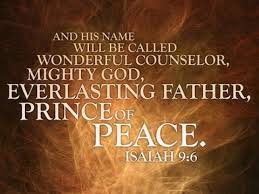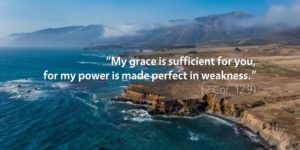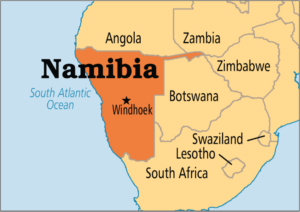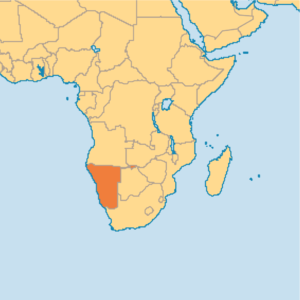SEPTEMBER 11- TODAY’S READING FROM THE ONE YEAR BIBLE- ISAIAH 8:1- 9:21; 2 CORINTHIANS 12: 1- 10; PSALM 55:1-23; PROVERBS 23:4-5
TODAY’S READING FROM THE OLD TESTAMENT- ISAIAH 8:1- 9:21
 Today we continue reading a series of Isaiah’s prophecies given during the reign of King Ahaz of Judah (Isaiah Chapters 7-12). The prophets were assigned to communicate God’s Word to the Kings of Israel and Judah. Isaiah is prophesying to King Ahaz of Judah but foretelling the futures of Israel, Judah, Syria, Assyria, and surrounding nations.
Today we continue reading a series of Isaiah’s prophecies given during the reign of King Ahaz of Judah (Isaiah Chapters 7-12). The prophets were assigned to communicate God’s Word to the Kings of Israel and Judah. Isaiah is prophesying to King Ahaz of Judah but foretelling the futures of Israel, Judah, Syria, Assyria, and surrounding nations.
By this time, King Pekah of Israel (Samaria) and Rezin of Syria threatened to invade Judah and take Jerusalem. But as we learned yesterday, in honor of the covenant that God made with King David, God promised to protect King Ahaz, even though he did not deserve it.
Isaiah had told Ahaz to ask God for a sign to reassure him that he need not fear this threatened invasion from the north. Ahaz refused to do so. God said he would give a sign anyway- a virgin will conceive, and before the child is able to speak properly, the invading forces of Syria and Israel will be overtaken by the Assyrians.
The ‘close-up lens view’ of this prophecy refers to the immediate and local situation of Ahaz’s day. The’ far-distance lens view’ of this prophecy pictures a greater deliverance coming through the virgin-born Savior, our Immanuel (Isaiah 7:14).
 The Lord commands Isaiah to take a large scroll and write the “Maher-Shalal-Hash-Baz” on it. This is to be the name of Isaiah’s new son, yet to be conceived. It is the longest personal name found in the Bible, and it means “quick to the plunder, swift to the spoil.” It is a word of encouragement that God would give Judah the victory over her enemies, and the northern kingdom would fall before the Assyrians (Isaiah 8:3). It is both a prophecy and a birth announcement. And this is the second announcement in the Book of Isaiah of the birth of a son yet to be conceived! (The baby boys- Immanuel and Maher-Shalal-Hash-Baz). Isaiah is enabled by God to give a ‘gender reveal’ announcement further in advance than anything possible with an ultrasound!
The Lord commands Isaiah to take a large scroll and write the “Maher-Shalal-Hash-Baz” on it. This is to be the name of Isaiah’s new son, yet to be conceived. It is the longest personal name found in the Bible, and it means “quick to the plunder, swift to the spoil.” It is a word of encouragement that God would give Judah the victory over her enemies, and the northern kingdom would fall before the Assyrians (Isaiah 8:3). It is both a prophecy and a birth announcement. And this is the second announcement in the Book of Isaiah of the birth of a son yet to be conceived! (The baby boys- Immanuel and Maher-Shalal-Hash-Baz). Isaiah is enabled by God to give a ‘gender reveal’ announcement further in advance than anything possible with an ultrasound!
Isaiah and his prophetess wife give birth to their second son with a prophetic name.
 Their first son was named Shear-jasub, meaning, ’a remnant shall return’. The return of a remnant of the people of Judah to the promised land after the Babylonian captivity is a theme in Chapters 10:20-22, 11:11-12, 16). The remnant of Judah had to return to reestablish Jerusalem and fulfill God’s redemptive mission, to bring forth the Messiah, the Promised Son of David, Jesus Christ. Both of Isaiah’s sons were given names prophesying hope through confidence in God’s promised victory.
Their first son was named Shear-jasub, meaning, ’a remnant shall return’. The return of a remnant of the people of Judah to the promised land after the Babylonian captivity is a theme in Chapters 10:20-22, 11:11-12, 16). The remnant of Judah had to return to reestablish Jerusalem and fulfill God’s redemptive mission, to bring forth the Messiah, the Promised Son of David, Jesus Christ. Both of Isaiah’s sons were given names prophesying hope through confidence in God’s promised victory.
This second prophetic birth announcement is witnessed by two men esteemed trustworthy at the time- Uriah, whose name means, “Yahweh is my light” and Zechariah, meaning “Yahweh’s purpose is to bless”. Sadly, Uriah would not continue to walk in the light and later will respond to Ahaz’s wicked request to build a pagan altar in Samaria patterned after one he had seen on a visit to Damascus (2 Kings 16:10-16).
 The soldiers of Judah knew this prophetic name given to Isaiah’s son was a reminder that the anticipated attack from the northern alliance of Samaria and Syria was doomed to failure, not by their might, but by God’s grace.
The soldiers of Judah knew this prophetic name given to Isaiah’s son was a reminder that the anticipated attack from the northern alliance of Samaria and Syria was doomed to failure, not by their might, but by God’s grace.
Romans 8:31 31 What then shall we say to these things? If God is for us, who is against us?
Isaiah’s wife, a prophetess, conceives and his son is born. About 2 years after his birth, in 732 BC, both Pekah of Israel (Samaria) and Rezin of Syria (Damascus) are dead. Assyria had conquered Syria and had begun its invasion of Israel (2 Kings 15:29). The army was ‘quick to the plunder and swift to the spoil’, fulfilling the prophecy of Isaiah 8:4, spelled out in the name of Maher-shalal-hash-baz.
Isaiah 8:4 4 for before the boy knows how to cry out ‘My father’ or ‘My mother,’ the wealth of Damascus and the spoil of Samaria will be carried away before the king of Assyria.
The Lord continues to reach out to King Ahaz, inviting him to trust Him for deliverance rather than making an alliance with the Assyrians. But once again, King Ahaz rejects God’s offer.
 God had provided His people protection from foreign invasion for 500 years. Now He tells Isaiah that He will open the floodgates and release ‘the River’, unleashing an Assyrian invasion (symbolically represented by the River Euphrates) that will flood the land, eventually extending to the land of Judah, although not as far as to reach Jerusalem (Isaiah 8:6-8).
God had provided His people protection from foreign invasion for 500 years. Now He tells Isaiah that He will open the floodgates and release ‘the River’, unleashing an Assyrian invasion (symbolically represented by the River Euphrates) that will flood the land, eventually extending to the land of Judah, although not as far as to reach Jerusalem (Isaiah 8:6-8).
Years later, during Hezekiah’s reign, Sennacherib’s Assyrian army would attempt to lay siege against Jerusalem, but God miraculously intervenes and drives them out in answer to Hezekiah’s prayer (Isaiah 37).
 The Lord could say to Assyria, “Devise your strategy; but it will be thwarted!” (8:10).
The Lord could say to Assyria, “Devise your strategy; but it will be thwarted!” (8:10).
As King Ahaz and the people reject Isaiah’s message, the Lord warns Isaiah not to follow the way of the deceived populace with their faulty analyses and conspiracy theories. He is not to give in to the crowd. Instead, he is to stop ministering to the crowd. His public ministry is to come to an end. He is called to draw near to the Lord and restrict his ministry to his disciples and those he is specifically told to address.
Isaiah 8:16 16 Bind up the testimony, seal the law among my disciples.
Isaiah rebukes Judah for trusting in an alliance with Assyria rather than trusting in the Lord. He also rebukes them also for trusting in the occult (mediums and spiritists) rather than in the Word of the Lord (8:19).
 Isaiah 8:20 20 To the law and to the testimony! If they do not speak according to this word, it is because they have no dawn.
Isaiah 8:20 20 To the law and to the testimony! If they do not speak according to this word, it is because they have no dawn.
The result of the people’s rejection of God’s Word is that they will walk in darkness. God’s cornerstone of deliverance will be a stone of stumbling rather than a stone of salvation. They will curse their king and their God.
 In Chapter 9, the theme of light and darkness continues. Isaiah gives the prophecy of a Redeemer, the Prince of Peace.
In Chapter 9, the theme of light and darkness continues. Isaiah gives the prophecy of a Redeemer, the Prince of Peace.
The Assyrians will take the northern kingdom into captivity, and the northern kingdom will never recover. After the Babylonian exile, the captives from Judah will return to Jerusalem, but the northern kingdom of Israel will be dispersed. The northern region is devastated. Naphtali and Zebulun were the first to suffer from the invasion of the Assyrians.
 2 Kings 15:29 29 In the days of Pekah king of Israel, Tiglath-pileser king of Assyria came and captured Ijon and Abel-beth-maacah and Janoah and Kedesh and Hazor and Gilead and Galilee, all the land of Naphtali; and he carried them captive to Assyria.
2 Kings 15:29 29 In the days of Pekah king of Israel, Tiglath-pileser king of Assyria came and captured Ijon and Abel-beth-maacah and Janoah and Kedesh and Hazor and Gilead and Galilee, all the land of Naphtali; and he carried them captive to Assyria.
But there is hope for this region of Naphtali and Zebulun. Galilee of the Gentiles will be honored when the promised Branch, the seed of David emerges centuries later.
Isaiah 9:1-2 1 But there will be no more gloom for her who was in anguish; in earlier times He treated the land of Zebulun and the land of Naphtali with contempt, but later on He shall make it glorious, by the way of the sea, on the other side of Jordan, Galilee of the Gentiles. 2 The people who walk in darkness Will see a great light; Those who live in a dark land, the light will shine on them.
We hear the good news proclaimed:
 Isaiah 9:6-7 6 For a child will be born to us, a son will be given to us; And the government will rest on His shoulders; And His name will be called Wonderful Counselor, Mighty God, Eternal Father, Prince of Peace. 7 There will be no end to the increase of His government or of peace, On the throne of David and over his kingdom, to establish it and to uphold it with justice and righteousness from then on and forevermore. The zeal of the LORD of hosts will accomplish this.
Isaiah 9:6-7 6 For a child will be born to us, a son will be given to us; And the government will rest on His shoulders; And His name will be called Wonderful Counselor, Mighty God, Eternal Father, Prince of Peace. 7 There will be no end to the increase of His government or of peace, On the throne of David and over his kingdom, to establish it and to uphold it with justice and righteousness from then on and forevermore. The zeal of the LORD of hosts will accomplish this.
This prophecy looks beyond Christ’s first coming to His second coming and the establishment of His kingdom.
Isaiah 9:8 to 10:4 describes what will happen to the Northern kingdom when the Assyrians invade. The judgment is thorough.
Isaiah 9:19 19 By the fury of the LORD of hosts the land is burned up, And the people are like fuel for the fire; No man spares his brother.
TODAY’S READING FROM THE NEW TESTAMENT – 2 CORINTHIANS 12:1- 10
 In Paul’s defense against his critics, he contrasts the Jesus he preaches with the false Jesus preached by the imposter-apostles. He contrasts his gospel with the false gospel of these false teachers. He contrasts his experience of self-sacrifice and suffering dangers with the experience of the super-apostles who make every effort to promote and preserve themselves.
In Paul’s defense against his critics, he contrasts the Jesus he preaches with the false Jesus preached by the imposter-apostles. He contrasts his gospel with the false gospel of these false teachers. He contrasts his experience of self-sacrifice and suffering dangers with the experience of the super-apostles who make every effort to promote and preserve themselves.
In chapter 12, we learn why he boasts in his weaknesses.
In this chapter, Paul further affirms the authenticity of his apostleship by telling of his first-hand experience of the crucified, risen, and glorified Savior, the Lord Jesus. Paul had met Him on the road to Damascus (Acts 9:2; 22:26), but now we learn of another encounter he has with Christ.
Paul was reticent about sharing his personal experiences. He did not want to exalt anyone but Jesus. But the Corinthians needed assurance that Paul knows Whom He has believed. His experiences were not designed to puff up his ego but rather to keep him humble and further conform him to the nature of Christ.
To avoid sounding like he is tooting his own horn or preaching himself, he describes his experience of being caught up to the third heaven in the third person rather than the first person.
 2 Corinthians 12:2 2 I know a man in Christ who fourteen years ago—whether in the body I do not know, or out of the body I do not know, God knows—such a man was caught up to the third heaven.
2 Corinthians 12:2 2 I know a man in Christ who fourteen years ago—whether in the body I do not know, or out of the body I do not know, God knows—such a man was caught up to the third heaven.
Was this an out of the body experience that he had when he was beaten, stoned and left for dead outside the gates of the city of Lystra? (Acts 14:19). I don’t think so, as Paul said it happened 14 years prior to him writing this letter, which would have meant it happened circa 41 -43 AD when he was just beginning his ministry in Syria and Cilicia. (Acts 9:30, Galatians 1:21).
In the Book of Acts, Paul experienced being ‘let down’ in a basket in Damascus (Acts 9:25), but here he describes being ‘caught up’ to the third heaven. Today we are able to rise into the first heavens through air travel (the earth’s atmosphere and stratosphere) and explore the second heavens (the starry heavens), but no one can go to the third heaven apart from the help of God. For the third heaven is described as ‘paradise’, where God dwells in glory. It is the place of God’s throne, the headquarters of His governmental rule. To prevent self-glorifying boasting and pride due to his extraordinary privileges of firsthand experience of the reality of heaven, the assurance of life after death, access to the presence of his ascended Lord, and receiving special revelation, God gave Paul a gift of an affliction.
Job’s comforters thought Job’s affliction was a punishment from God. We learn that Paul’s affliction was actually a gift from God, although it was ministered to him by a messenger of Satan! In heaven Paul had divine secrets disclosed to him (Ephesians 3:1-6) and he heard words that were inexpressible and which men were not allowed to speak. And the thorn in the flesh that was given to him, though it tormented him, served a necessary, divine, preserving purpose in Paul’s life, “so that he would not exalt himself.”
 This vision of God’s glory helped to sustain Paul’s extraordinary ministry. Paul confidently assures us that we who are ‘in Christ Jesus’ are already ‘seated with Christ in heavenly places’ (Ephesians 2:6). We are members of His body, His glorious church on the earth, and are now being built together to be a habitation for God through the Spirit. We have been given delegated authority and are being trained to reign with Christ in the ages to come. How did he know these things?
This vision of God’s glory helped to sustain Paul’s extraordinary ministry. Paul confidently assures us that we who are ‘in Christ Jesus’ are already ‘seated with Christ in heavenly places’ (Ephesians 2:6). We are members of His body, His glorious church on the earth, and are now being built together to be a habitation for God through the Spirit. We have been given delegated authority and are being trained to reign with Christ in the ages to come. How did he know these things?
God permits us to have hardships and to experience suffering in this world. Many aspects of the problem of suffering and evil in this world remain a mystery, but we know that God causes all things to work together for good to those who love God, to those who are called according to His purpose (Romans 8:28).
 Paul did not silently sit back and endure suffering. He kept on engaging with God in prayer. The expression, “I pleaded with the Lord three times,” implies persistence in prayer. He experienced God’s glory and human pain.
Paul did not silently sit back and endure suffering. He kept on engaging with God in prayer. The expression, “I pleaded with the Lord three times,” implies persistence in prayer. He experienced God’s glory and human pain.
God answered Paul’s prayer with a solid revelation. The tense of the verb in 2 Corinthians 12:9 shows how settling a Word of God can be.
“And He (God) once-and-for-all said to me: ‘My grace is sufficient for you, for power is perfected in weakness.”
 Kenneth Wuest, a master in Greek tenses, translates it: “And He has said to me, and His declaration still stands, My grace is enough for you, for power is moment by moment coming to its full energy and complete operation in the sphere of weakness.”
Kenneth Wuest, a master in Greek tenses, translates it: “And He has said to me, and His declaration still stands, My grace is enough for you, for power is moment by moment coming to its full energy and complete operation in the sphere of weakness.”
This is why Paul boasts in his hardships, in insults, persecutions, and weaknesses: “For when I am weak, then I am strong.” (12:10).
TODAY’S READING FROM THE BOOK OF PSALMS – PSALM 55:1-23
 The Psalmist is deeply disturbed by the accusations of the enemy (55:1-3). His heart is overwhelmed by his current circumstances, and he longs to be able to flee from them (55:4-8).
The Psalmist is deeply disturbed by the accusations of the enemy (55:1-3). His heart is overwhelmed by his current circumstances, and he longs to be able to flee from them (55:4-8).
Rather than personally taking revenge, he asks the Lord to deal with his foes. He is confident that the Lord is able to do so rightly (50:23).
 He pleads in prayer that the Lord would confound the speech of the enemy who has brought discord to the city.
He pleads in prayer that the Lord would confound the speech of the enemy who has brought discord to the city.
When we look at what is taking place in our cities around the world today, we can identify with the Psalmist’s prayer request:
Psalm 55:9-11 9 Confuse, O Lord, divide their tongues, For I have seen violence and strife in the city. 10 Day and night they go around her upon her walls, and iniquity and mischief are in her midst. 11 Destruction is in her midst; Oppression and deceit do not depart from her streets.
The Psalmist’s personal pain is clear in verses 12-14 since he had suffered the betrayal of a close friend with whom he once worshiped the Lord! This ‘companion’ has not only attacked the Psalmist but violated his covenant relationship with his friends (50:20-21). He deceives others with smooth speech.
The Psalmist encourages us all to pray.
Psalm 55:22 22 Cast your burden upon the LORD and He will sustain you; He will never allow the righteous to be shaken.
He confirms this promise with his own testimony. (55:16-19).
TODAY’S READING FROM THE BOOK OF PROVERBS – PROVERBS 23:4-5
Proverbs 23:4-5 4 Do not weary yourself to gain wealth, Cease from your consideration of it. 5 When you set your eyes on it, it is gone. For wealth certainly makes itself wings Like an eagle that flies toward the heavens.
You have heard it said, “Money talks. And most often it says ‘Goodbye’.”
Here is wisdom. Lay up your treasures in heaven if you want your wealth to last. Thank God who enables you to earn your keep and gain wealth. But do not be preoccupied with it. Cease from your fixation on wealth. It has a habit of flying south.
PRAY FOR THE NATIONS- NAMIBIA
Republic of Namibia
Africa
Geography
Predominantly arid, semi-desert; the driest African land south of the equator.
Population: 2,212,037 Annual Growth: 1.94%
Capital: Windhoek
Urbanites: 38%
HDI Rank: 128 of 182 (UN Human Development Reports 2009)
Namibia, whose anthem deems them, “The Land of the Brave”, began a grueling fight for freedom in 1966 led by the South-West Africa People’s Organization. It was two decades before South Africa agreed to remove their administration from Namibia in compliance with a UN peace plan. More than 20 years after the treacherous war for freedom, the country has begun the healing process.
A semi-desert nation in southern Africa, Namibia is bordered by Botswana, Angola, and South Africa. With an extremely hot and dry climate and extended periods of drought, Namibians frequently lack freshwater resources. The nation is also the fourth highest HIV/AIDS-infected country in the world, and life expectancy for Namibians is less than 60 years. Rich in diamonds, zinc, uranium, and other natural resources, much of the nation’s economy relies on the mining industry. As a result, Namibia became the first African country to include environmental protection in its constitution. While the nation’s natural resources are abundant, more than 35% of Namibians are without work, leaving many of the people in great poverty.
Although more than 90% of the population is Christian, afro-spiritualism has crept its way into the church, leading to syncretistic worship practices. However, a prayer movement is sweeping the nation and building community among Christians of several denominational backgrounds. The San, the Himba, and the peoples of the Kavango and Caprivi Strip are the least evangelized of Namibia, and missionaries need wisdom and discernment to develop specific approaches to reach these people groups. Purity in worship and in the Church must be restored in the lives of Namibian Christians. The deeper their walk with God, the brighter the light of Christ will shine through them, attracting those who have not heard or do not yet believe
Peoples
Peoples: 35 (6% unreached) All peoples
Unreached Peoples Prayer Card
Official language: English, though few speak it; most speak Afrikaans Languages: 37 All languages
Religion
Largest Religion: Christian
| Religion | Pop % | Ann Gr | |
| Christians | 2,022,687 | 91.44 | 1.7 |
| Evangelicals | 270,326 | 12.2 | 2.2 |
Challenges for Prayer
Missions are experiencing a time of growth as the need to re-reach many peoples in Namibia becomes apparent. Pray that they would minister in the power of the gospel, but also with sensitivity. Major missions are: AIM, YWAM, AoG, SIM.
PRAYER: Heavenly Father, You have encouraged us to put our trust in You rather than fleeting wealth and flawed wisdom. Thank You for Your unfailing Word. Help us to see that Your grace is sufficient for us, even as we are buffeted with all the sufferings that come from human experience. We are grateful that we can cast our cares on You and that You will sustain us and will never let those who are rightly related to You fail. We pray that You will expose the lies of the enemy, frustrate his plans, and bring Your truth to light up our dark world. In Jesus’ Name. Amen.


